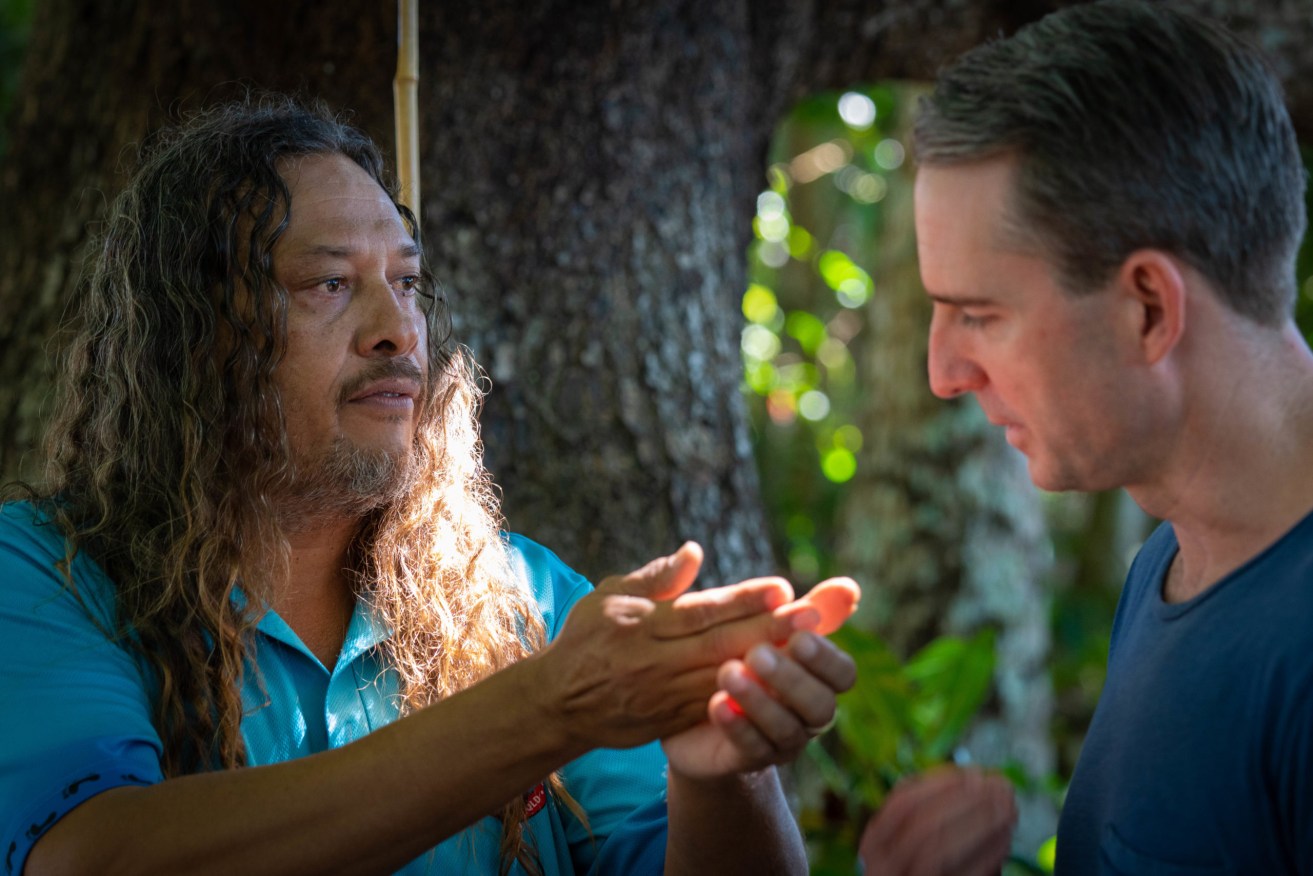Why health and science is embracing knowledge of First Nations people
The electronic medical platform known as My Health Record can not only list previous scans and scripts, but also use of bush medicine. It is another sign of traditional knowledge going mainstream.

Kuku Yalanji man Linc Walker shows local bush medicine to Port Douglas pharmacist Brad Reilly. (Supplied)
Ahead of NAIDOC Week, the Australian Digital Health Agency is addressing the importance of bush medicine in Indigenous culture and how the My Health Record can be used to manage that information.
Dr Jason King, director of clinical services and senior medical officer at Gurriny Yealamucka Health Service in Yarrabah, said it was important to be able to deliver wholistic care to patients.
“I ask my patients what bush medicines they are using and include that information in the medical records in our clinic and this feeds into My Health Record,” said King, a Yued Noongar man from Western Australia.
The agency brought together Linc Walker, owner and tour guide at Kuku Yalanji Cultural Habitat Tours in Cooya Beach, near Port Douglas, and local pharmacist Brad Reilly to discuss the use of traditional medicine.
Reilly heard Walker describe a range of local bush medicines, including the use of green ants to make three different medicines for sore throat and breathing problems and the white fruit of beach lettuce squeezed softly for an eyewash or skin wash.
“What a lot of people don’t know is that some of the medicines we use day to day here in the pharmacy have their origins from the plants and animals in the lands around us,” Reilly said.
“Just because we’re taking it from the pharmacy shelf as a packaged medicine and dispensing it to patients doesn’t dismiss the original source of our modern medicines.”
The Queensland Government is rewriting the guidelines for the state’s Biodiscovery Act to clarify when, and how, entities might be able to capitalise on traditional knowledge.
That could see First Nations people attain greater benefits from commercialisation or potentially block the use of information without their involvement and consent.
“Biodiscovery involves the collection and analysis of native biological material for commercial purposes, such as the development of pharmaceuticals and insecticides,” the government states in a discussion paper.
“The Act’s traditional knowledge obligation protects access to, and use of the traditional knowledge of First Nations peoples in biodiscovery. It requires the consent of traditional knowledge custodians and provides for benefit-sharing from biodiscovery for First Nations people.”










